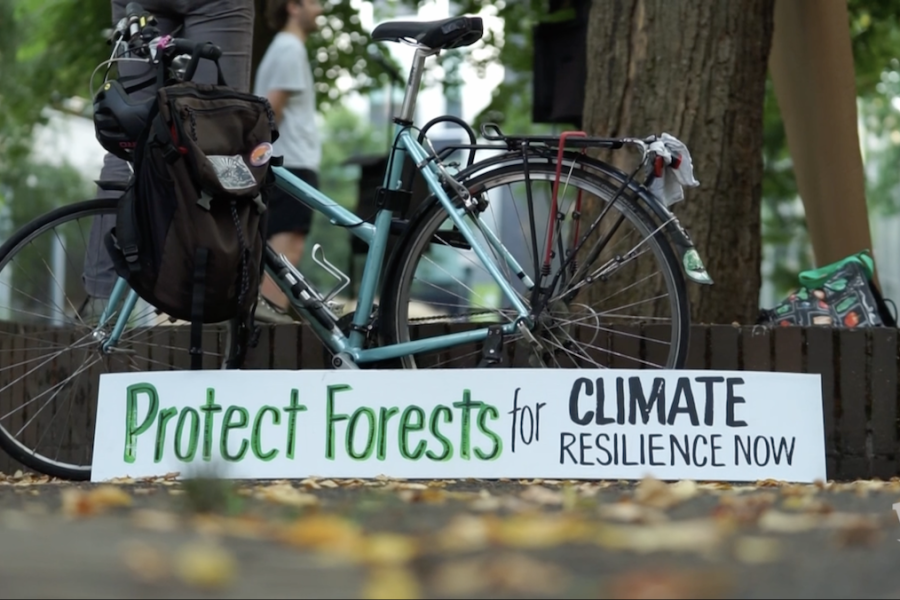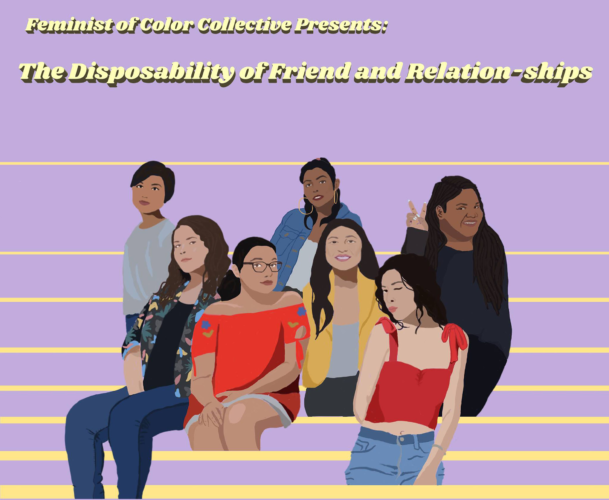Last year, Literary Arts welcomed over 3,000 people to its annual Portland BookFest (PFB). With events split between virtual panels and live discussions, the local nonprofit found its footing in its first year out of quarantine. As November quickly approaches, Literary Arts is once again looking to broaden its reach and bring its namesake to even more of the public with this year’s BookFest.
This year’s Portland BookFest will take place entirely in-person from Nov. 4–7 at its usual venues, including the Portland Art Museum and South Park Blocks, and will follow its regular schedule of events. This year added times and spaces that offer even greater opportunities for discovering new work to read, new writers to enjoy and aspects of storytelling you might not have explored yet.
Exploring that storytelling with others is an integral part of the festival. “One of the foundations of the festival is that it’s a one-day intergenerational celebration of literature and storytelling,” said Amanda Bullock, Director of Public Programs at Literary Arts. “Reading and writing can be very solitary activities. You’re typically doing either of those things by yourself, quietly, so I think both for the authors and for the audience—to just be together around these shared interests is really powerful and really important.”
“One of the biggest advantages of a festival is the density,” Bullock said. “There are so many events, and there’s so many authors, and there’s a book for everyone. [The festival] includes a wide range of books, from pretty serious nonfiction, [to] biographies, to cook[books], to best-selling fiction authors, to debut fiction, to poetry.”
PFB is not only a valuable event for Portland’s historied book community or those with more casual literary interests—festivities are not just reserved for readers. Attendees can stop for drinks at the whiskey lounge, enjoy a cheese tasting at an upcoming Cover-To-Cover event or explore the art museum, where themes of written work are paired with visual art and pop-up readings are hosted during the weekend of the festival.
However, for those that have an interest in the literary elements, attendees can anticipate a wide-ranging lineup of guest speakers. Live events include—to name a few—New York Times-bestselling author of The Collected Schizophrenias, Esmé Weijun Wang, in conversation with acclaimed actress Selma Blair, whose bestselling memoir Mean Baby released in May; Lan Samantha Chang, author of The Family Chao in conversation with Silvia Moreno-Garcia, author of The Daughter of Doctor Moreau, about the family relationships at the center of their latest fiction releases; poet CJ Evans, author of A Penance, and Saeed Jones, award-winning author of How We Fight For Our Lives, will discuss their latest poetry collections, Lives and Alive At The End of the World respectively; and Casey McQuiston, author of I Kissed Shara Wheeler and Emiko Jean, author of Tokyo Dreaming, will be in conversation about writing young adult romance and their newest releases.
For those unable to attend in person this year, the events are audibly accessible post-festival. “Literary Arts has always offered virtual programming because we have this radio show and this podcast… [and we] audio record all of the festival events for potential later broadcast on The Archive Project,” Bullock said. “[We have] been doing that work eight years now. And we’ll continue to offer our events that way. So that’s one reason we’re not doing virtual events as part of the festival anymore.”
People can, however, attend online writing craft workshops throughout the festival weekend that focus on varying things, from character development to writing poetry. Events exclusively for writers in middle and high school are also available. Further workshop options are also available for writers of all ages to attend in person.
These are just a handful of the events under the umbrella of PBF Cover-To-Cover, the festival’s partner running from Nov. 1–6. “We invited organizations all around the city to submit their [proposals] to be included in a whole week of events,” Bullock said. “So it’s [Nov. 1–6], there’s stuff happening all over town. Literary Arts is not presenting the events ourselves, but we’ve said, ‘yes, this is a cool event.’”
Regardless of how attendees participate, the support the festival receives each year is something that goes to show the vast cultural value of carving out community spaces like this. “[By showing up at events like this], you’re saying arts and culture and literature and storytelling are important,” Bullock said.






